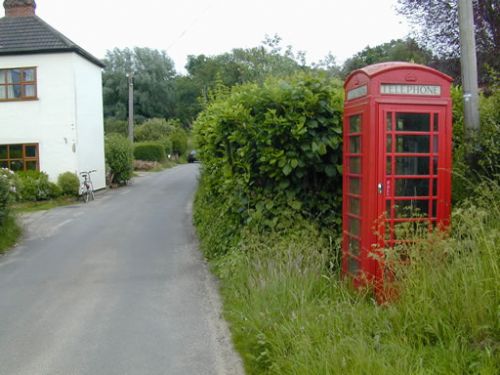
People living in the countryside are, on average, getting 50% less government grant per head of population to their local councils and paying £100 a year more in council tax than those in cities, and get fewer public services, according to a report out today.
The study, published by the Rural Services Network, a coalition including 93 councils in England serving predominantly rural areas, says this inequitable and indefensible ’rural gap’ - the result of the local government finance system - should be addressed now as part of Government plans to shake up council grants and business rates. However, those plans threaten to lock in that unfairness for a further 10 years under one of the options being consulted on.
The Rural Services Network asked independent local government finance consultancy, Local Government Futures to compare government funding for rural communities with that received in urban areas.
Today’s report shows that on average urban authorities receive 50% more funding per head of population than rural authorities - £487 per head on average compared with £324 in predominately rural areas.
Other key findings in the report include:
• Council Tax per head is 21% higher for Predominantly Rural authorities (£572), compared to Predominantly Urban authorities (£473).
• Despite higher levels of rural council tax, total revenue spending power, spending power from council tax, Government revenue grants and NHS funding for social care, is lower for Predominantly Rural authorities (£927) compared to Predominantly Urban authorities (£1,216).
The allowances in the present funding formulae for the additional costs associated with service provision across rural areas are woefully inadequate compared to those actual costs thereby creating a "rural penalty" for rural councils and the communities they serve.
Ministers launched a Local Government Resources Review in March 2011, looking at how local authorities are funded. As part of this review the issue of business rate localisation is being looked at. The Rural Services Network says that action must also be taken to reduce the rural penalty and to recognise the extra cost of providing services in rural areas. Concerns have been raised that the unfairness of the present system may become "locked in" for up to 10 years by the proposals currently out for consultation relating to business rates retention.
Councillor Roger Begy OBE, Chairman of the Rural Services Network, England’s leading membership organisation devoted to safeguarding and improving services in rural communities, said:
"This rural penalty means council tax payers in the countryside are forced to pay more but receive less by way of public services in areas where earnings levels are much lower than the national average.
"When combined with the additional costs of providing services in rural areas this puts residents in rural communities at a significant disadvantage when compared to people that live in urban areas.
"We believe that the Local Government Resources Review presents a valuable opportunity for the government to redress this imbalance and demonstrate its commitment to rural councils and their residents. This would be in line with the Conservative Party’s "Rural Action Plan" published ahead of the last General Election.
"If the UK is to be led from recession via a more balanced economy and become the best place to start a business in Europe them we must end the bias against rural areas. If vast swathes of the country are handicapped by higher costs and poorer access to basic services then this vision will not become a reality."
Graham Stuart MP, Conservative MP for Beverley and Holderness and Chair of the Rural Services All Party Parliamentary Group said:
"I think it is extremely disappointing to see a continuing disparity in the funding for rural and urban areas. Rural communities are at the losing end of an inequitable system that sees residents pay more, yet receive less.
"For example, fire services in predominantly rural authorities receive less funding yet, alarmingly, they attend significantly more primary fires, handle a proportionately greater number of incidents of road traffic collisions and face significantly higher overhead costs than predominantly urban authorities. This newly published report highlights that the current formula is simply unfair and could prove detrimental to the public and services provided in rural regions.
"The Government must reconsider how they distribute financial resources to local authorities by reforming what can only be described as an unbalanced funding formula. I hope the Government realises that this is the right thing to do and demonstrates a commitment to rural community needs."
